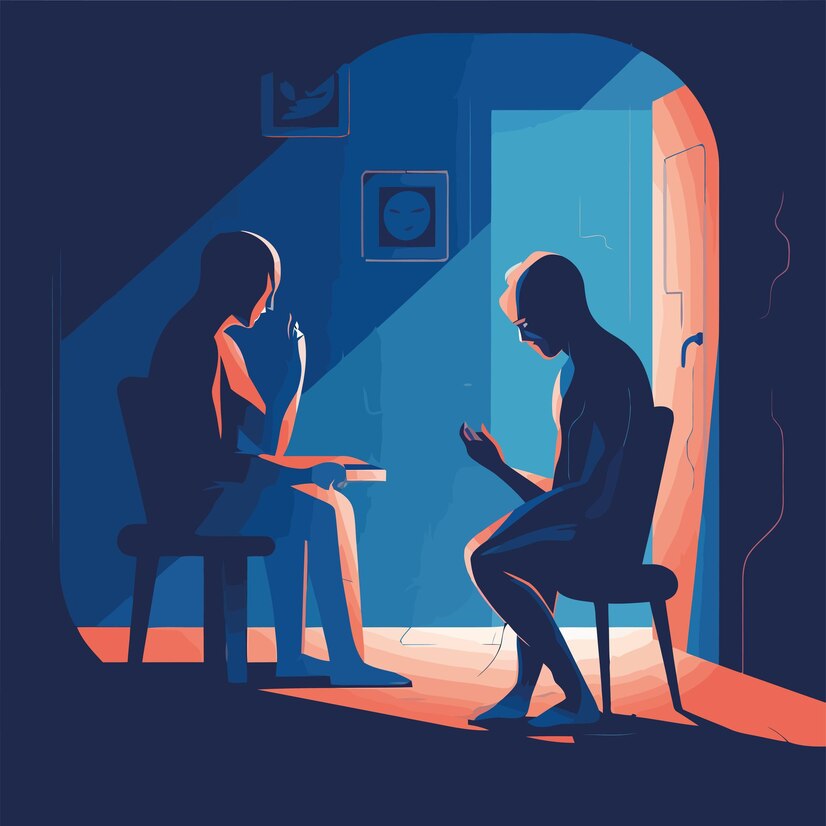In today's digital age, social media has become an integral part of our daily lives. It has revolutionized the way we communicate, share information, and connect with the world. However, while social media offers numerous benefits and opportunities, it also poses potential risks to our mental health. In this article, we will delve deep into the positive and negative effects of social media on our mental well-being. We will explore how the best psychologist in India and Online counsellor are addressing these issues and providing support.
Social Media's Beneficial Impact on Mental Health
1. Increased Social Connection and Support
Social media platforms provide a virtual space for individuals to connect with friends, family, and like-minded people from all around the world. It offers an opportunity for individuals to share their thoughts, experiences, and emotions, thus reducing feelings of isolation and loneliness. Online communities and support groups play a crucial role in providing empathy, advice, and encouragement.
2. Access to Information and Resources
Social media acts as a hub for information-sharing. It allows individuals to access valuable resources, educational content, and self-help materials related to mental health. The best psychologists in India often utilize social media platforms to disseminate informative articles, videos, and tips to help individuals better understand their mental well-being and seek appropriate support.
3. Encouragement for Self-Expression and Creativity
Social media platforms offer a creative outlet for individuals to express themselves through art, photography, writing, and more. This self-expression can foster personal growth, boost self-esteem, and provide a sense of accomplishment. The ability to receive positive feedback and constructive criticism further promotes personal development and enhances mental well-being.
The Negative Effects of Social Media on Mental Health
1. Comparison and "FOMO" (Fear of Missing Out)
Social media often presents an idealized and curated version of people's lives, leading to feelings of inadequacy and low self-esteem. Constant comparison with others' achievements, appearances, and lifestyles can contribute to anxiety, depression, and a sense of unworthiness. The fear of missing out on events and experiences depicted on social media can also lead to a sense of social isolation.
2. Cyberbullying and Online Harassment
The anonymity provided by social media platforms sometimes brings out the worst in people, leading to cyberbullying and online harassment. Individuals may face derogatory comments, threats, or public shaming, which can have severe psychological effects. Online counselors play a crucial role in helping victims of cyberbullying cope with the emotional distress caused by these harmful interactions.
3. Addiction and Reduced Productivity
The addictive nature of social media platforms can negatively impact mental health. Excessive usage can lead to reduced productivity, sleep disturbances, and neglect of real-life relationships. Platforms designed to be engaging and addictive often consume excessive amounts of time, leading to feelings of guilt, stress, and a distorted sense of reality.
The Role of Psychologists and Online Counselors
The best psychologists in India recognize the influence social media has on mental health and actively engage with individuals through these platforms. They provide evidence-based information, psychological tools, and coping strategies to counteract the negative impact of social media. Additionally, online counselors offer accessible and affordable mental health support to those who may not have access to traditional face-to-face counseling.
Through targeted campaigns, online workshops, and one-on-one counseling sessions, these professionals address mental health challenges associated with social media. They emphasize the importance of setting healthy boundaries, practicing self-care, and nurturing real-life relationships. They also educate individuals on identifying warning signs of cyberbullying and provide guidance on how to seek help.
Conclusion
While social media has its fair share of positive and negative effects on mental health, it is crucial to approach these platforms mindfully and with awareness. The best psychologists in India and online counselors play a pivotal role in educating individuals about the potential risks and benefits of social media. By promoting responsible usage, fostering a sense of community, and providing necessary support, they are enabling individuals to navigate social media in a way that promotes positive mental well-being.





Comments